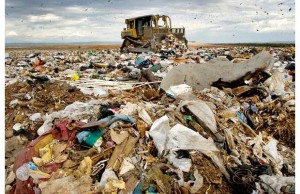Vancouver’s Proposal to Tackle Waste Management
Just this past week, the City of Vancouver Council announced that it was considering a ban of hard-to-recycle materials such as single-use plastic bags, coffee cups and polystyrene food packaging. This comes at a time when an increasing amount of these materials are being thrown in public garbage bins, building up as litter on busy streets, and eventually accumulating in the city’s landfills. The objective is to target businesses first and foremost, by creating a voluntary program to switch to 100% recyclable materials and then developing standards to put financial pressure on businesses who have not yet made the switch. Given that the majority of these items are disposed of within 24 hours of use, it is clear that Vancouverites are either using these materials because they are either: 1) convenient to use or 2) the only product offering available by a given company.
I believe a large behavioural barrier that deters many people from using reusable items is the idea of convenience. A lot of people feel it is not “convenient” to carry around a reusable bag, food container, or coffee mug every day on the off chance that they might end up using it. For instance, I am more than willing to carry around my reusable shopping bag in my backpack or purse, yet I very rarely consider carrying a reusable coffee mug unless I fill it up from home. I think the concept of behavioural barriers ties in nicely with the client we are currently working with in class, Zero Waste Market. Zero Waste is attempting to tackle Vancouver’s waste management issue and plastic pollution by creating a marketplace where consumers can engage in sustainable practices by only buying the foods they need, in bulk, with reusable containers. As they are one of the first businesses to offer 100% “zero waste products”, I think the Vancouver market will definitely see more entrants and competitors offering more biodegradable products if Zero Waste is a success.
Relating back to my first blog post, I truly believe that the most effective way to encourage sustainable behaviour among consumers is to start at the point of transaction and encourage businesses to take the first step. While this all seems like a practical way to tackle waste management, it is important to note that the potential Vancouver ban may have adverse effects on vulnerable communities, such as low-income or homeless people whose lifestyles depend on the use of these materials. If you were to walk into Safeway one day and suddenly all of the plastic bags were missing, would it affect your lifestyle?



Love that the city of Vancouver is taking these initiatives in regulating waste. Cities like Portland and San Francisco have already taken the lead in banning plastic bags years ago, and it’s pretty incredible how it has forced people’s habits to shifting to carrying their own tote bags for shopping.
The point you brought up about bringing your own coffee mug as being somewhat inconvenient is something I sympathize with as well. The waste of these throw-away convenience products is certainly something I feel guilty about when I go to buy a coffee after forgetting to pack my mug. But just like people have adapted to carrying cloth bags (or using paper bags,) I’m confident that we can also learn to bring our own mugs, or switch to actually-recyclable paper cups.